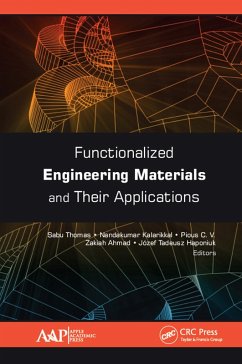Scientists and researchers are looking for new smart materials to replace old or conventional materials for better performance and for new applications. The use of polymeric materials and nanomaterials is increasing due to their wide-spectrum tunability and many properties. It is now easier to formulate materials for special purposes using these materials than using conventional materials and methods. Many commercial products made from polymeric materials and nanomaterials are now in use and on the market.
This book presents a diverse selection of cutting-edge research on the development of polymeric materials and nanomaterials for new and different applications. These include electrical applications, biomedical applications, sensing applications, coating applications, and others. A few chapters dedicated to materials for construction applications are also included. Discussions include the properties, behavior, preparation, processing, and characterization of various polymeric materials, nanomaterials, and their composites. Some of the chapter authors present theoretical studies of these systems, which can help readers to develop a better understanding in this area.
This book presents a diverse selection of cutting-edge research on the development of polymeric materials and nanomaterials for new and different applications. These include electrical applications, biomedical applications, sensing applications, coating applications, and others. A few chapters dedicated to materials for construction applications are also included. Discussions include the properties, behavior, preparation, processing, and characterization of various polymeric materials, nanomaterials, and their composites. Some of the chapter authors present theoretical studies of these systems, which can help readers to develop a better understanding in this area.
Dieser Download kann aus rechtlichen Gründen nur mit Rechnungsadresse in A, B, BG, CY, CZ, D, DK, EW, E, FIN, F, GR, HR, H, IRL, I, LT, L, LR, M, NL, PL, P, R, S, SLO, SK ausgeliefert werden.









